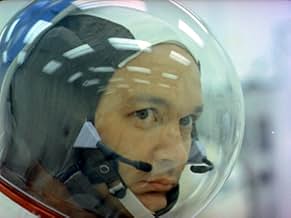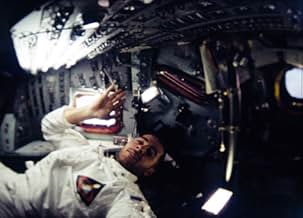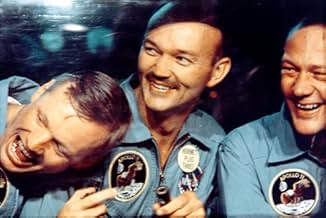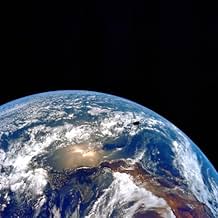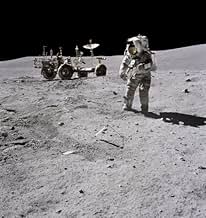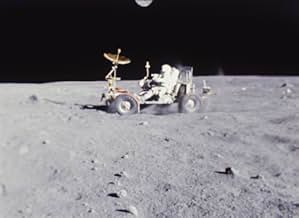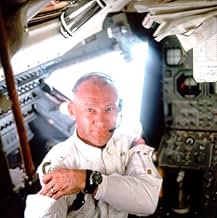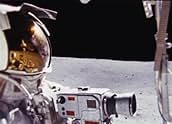IMDb-BEWERTUNG
8,0/10
7022
IHRE BEWERTUNG
Die Besatzungsmitglieder der Apollo-Missionen der NASA erzählen ihre Geschichte in ihren eigenen Worten.Die Besatzungsmitglieder der Apollo-Missionen der NASA erzählen ihre Geschichte in ihren eigenen Worten.Die Besatzungsmitglieder der Apollo-Missionen der NASA erzählen ihre Geschichte in ihren eigenen Worten.
- Auszeichnungen
- 6 Gewinne & 13 Nominierungen insgesamt
Jim Lovell
- Self
- (as James Lovell)
Edgar D. Mitchell
- Self
- (as Edgar Mitchell)
Dave Scott
- Self
- (as David Scott)
William Anders
- Self
- (Archivfilmmaterial)
Neil Armstrong
- Self
- (Archivfilmmaterial)
Stephen Armstrong
- Self
- (Archivfilmmaterial)
Viola Armstrong
- Self
- (Archivfilmmaterial)
Jules Bergman
- Self
- (Archivfilmmaterial)
Frank Borman
- Self
- (Archivfilmmaterial)
Roger B. Chaffee
- Self
- (Archivfilmmaterial)
Yuri Gagarin
- Self
- (Archivfilmmaterial)
Empfohlene Bewertungen
I don't admit this to too many people, but the single most significant historic event I have ever "witnessed," was watching the first lunar landing as it happened, on television, as a ten year old kid. Okay, maybe there was a thirteen-second delay, but I was right there with those guys-- my heart pounding, skipping a beat every time Uncle Walter (a.k.a. Walter Cronkite, the most trusted man in America) interjected his incomparably eloquent journalistic commentary. But even Cronkite couldn't suppress his awe as mankind's greatest achievement unfolded before our eyes.
The documentary, "In the Shadow of the Moon," directed by David Sington, and presented by Ron Howard (who partnered with ThinkFilm to help usher the project to completion), is not only a romantic, dramatic, suspense-filled fantasy to behold, it grips you with deep emotion and vests you with our heroes through every sequence of their quest. And it's all real.
Without a single frame of CGI or simulation, the filmmakers compiled astounding, never-before seen footage with inserts of intimate confessions by some of the remaining Apollo crew members who took part in the nine moon landings. "Shadow" shows just part of how the work of 400,000 scientists and engineers came together to make President Kennedy's dream of putting a man on the moon by the end of the decade, a reality. These are parts worth seeing.
"The extraterrestrial film footage, shot by the astronauts themselves, has been brought out of storage only a handful of times since the sixties and seventies," Chris Riley, the film's co-producer explains. Considering that there may not be any more footage shot on or from the moon by an actual human, again in our lifetime, this film is very precious indeed.
"In the Shadow of the Moon" effectively evokes that brief time in late-20th century America when we thought that the government was doing something right. This documentary puts a human face-- and soul-- into those bulky space suits, and let's us know what it was really like to be on those harrowing missions.
Command module pilot Michael Collins admits to having being excited, but not fearful. At times, mostly worried-- that all the machinery would work as planned. The documentary reveals a few of those times the machines didn't, or almost didn't work. And startlingly, how much "luck" played a part in the operations. "Shadow" nearly gives us a first-person experience of how a body feels, what the physical sensations of being shaken, slammed, and thrust-- first off the ground, then through the atmosphere, finally into the eerie calm and quiet of space. The men talk of how they felt a fool's complacency, if only for a second, after a rocket stage would break away and fall to earth, until anticipation of the next stage's violent expulsion reminded them that it too, would detach as planned, or explode killing them all. It makes the Space Mountain ride at DisneyWorld sound like a massage.
Although Neil Armstrong, known to be somewhat of a recluse, does not make an appearance, he is certainly there in spirit. His fellow crew members make it known they felt he was the right choice for the first man out. That he was preternaturally calm under pressure, they concur. Recollecting how Armstrong delivered those poignant first words as he descended the steps of the LEM, and how it might have been more tempting for them to simply yell, "Whoopee! I did it!" But Buzz Aldrin asserts that he also holds a record for a lunar first. In one of the many hilarious moments in the film, his feat is captured on video as proof.
Most of the men who went on the Apollo moon missions tell in this film, of the moment while in space, viewing the galaxy from a perspective very few of us will ever see, they experienced the profound realization of their own insignificance, while comforted with a certainty of infinite connectivity with the very stuff of the universe. Contrast that with the "hero's parades" and instant celebrity into which they were violently thrust upon return to terra firma. Additionally, some of the astronauts confess the guilt they felt, knowing that many of the pilots and friends they had trained and served with, were being "shot at, shot down, and were fighting for their country" in Viet Nam.
Some might have viewed America's race to the moon was little more than a diversion, cleverly orchestrated by government propagandists, from the colossal turmoil of the times. Others, saw it as a symbol of hope-- that there was something greater beyond our mere earthly squabbles.
Watching this film reminded me of what America is capable-- how much can be accomplished in the interest of science, ecology, or the most human of natures, curiosity-- not to be underrated. Present and future resources, research, and funding if thoughtfully channeled, just might be able to find alternate sources of energy, cure cancer, and save the planet from ecological disaster.
President Kennedy foresaw that the way out of the Post-War confusion and the Cold War paranoia, was to coach us back to the top of our game. Just a few years before what would eventually become the debacle of Viet Nam, this was perhaps one of the last times America truly was champion of the world. Getting to the moon made us feel like winners. We were proud. I still am.
The documentary, "In the Shadow of the Moon," directed by David Sington, and presented by Ron Howard (who partnered with ThinkFilm to help usher the project to completion), is not only a romantic, dramatic, suspense-filled fantasy to behold, it grips you with deep emotion and vests you with our heroes through every sequence of their quest. And it's all real.
Without a single frame of CGI or simulation, the filmmakers compiled astounding, never-before seen footage with inserts of intimate confessions by some of the remaining Apollo crew members who took part in the nine moon landings. "Shadow" shows just part of how the work of 400,000 scientists and engineers came together to make President Kennedy's dream of putting a man on the moon by the end of the decade, a reality. These are parts worth seeing.
"The extraterrestrial film footage, shot by the astronauts themselves, has been brought out of storage only a handful of times since the sixties and seventies," Chris Riley, the film's co-producer explains. Considering that there may not be any more footage shot on or from the moon by an actual human, again in our lifetime, this film is very precious indeed.
"In the Shadow of the Moon" effectively evokes that brief time in late-20th century America when we thought that the government was doing something right. This documentary puts a human face-- and soul-- into those bulky space suits, and let's us know what it was really like to be on those harrowing missions.
Command module pilot Michael Collins admits to having being excited, but not fearful. At times, mostly worried-- that all the machinery would work as planned. The documentary reveals a few of those times the machines didn't, or almost didn't work. And startlingly, how much "luck" played a part in the operations. "Shadow" nearly gives us a first-person experience of how a body feels, what the physical sensations of being shaken, slammed, and thrust-- first off the ground, then through the atmosphere, finally into the eerie calm and quiet of space. The men talk of how they felt a fool's complacency, if only for a second, after a rocket stage would break away and fall to earth, until anticipation of the next stage's violent expulsion reminded them that it too, would detach as planned, or explode killing them all. It makes the Space Mountain ride at DisneyWorld sound like a massage.
Although Neil Armstrong, known to be somewhat of a recluse, does not make an appearance, he is certainly there in spirit. His fellow crew members make it known they felt he was the right choice for the first man out. That he was preternaturally calm under pressure, they concur. Recollecting how Armstrong delivered those poignant first words as he descended the steps of the LEM, and how it might have been more tempting for them to simply yell, "Whoopee! I did it!" But Buzz Aldrin asserts that he also holds a record for a lunar first. In one of the many hilarious moments in the film, his feat is captured on video as proof.
Most of the men who went on the Apollo moon missions tell in this film, of the moment while in space, viewing the galaxy from a perspective very few of us will ever see, they experienced the profound realization of their own insignificance, while comforted with a certainty of infinite connectivity with the very stuff of the universe. Contrast that with the "hero's parades" and instant celebrity into which they were violently thrust upon return to terra firma. Additionally, some of the astronauts confess the guilt they felt, knowing that many of the pilots and friends they had trained and served with, were being "shot at, shot down, and were fighting for their country" in Viet Nam.
Some might have viewed America's race to the moon was little more than a diversion, cleverly orchestrated by government propagandists, from the colossal turmoil of the times. Others, saw it as a symbol of hope-- that there was something greater beyond our mere earthly squabbles.
Watching this film reminded me of what America is capable-- how much can be accomplished in the interest of science, ecology, or the most human of natures, curiosity-- not to be underrated. Present and future resources, research, and funding if thoughtfully channeled, just might be able to find alternate sources of energy, cure cancer, and save the planet from ecological disaster.
President Kennedy foresaw that the way out of the Post-War confusion and the Cold War paranoia, was to coach us back to the top of our game. Just a few years before what would eventually become the debacle of Viet Nam, this was perhaps one of the last times America truly was champion of the world. Getting to the moon made us feel like winners. We were proud. I still am.
Saw this film at Sundance, the screening reserved for the Grand Jury World Documentary Award Winner. Wow! I have seen many of the preceding documentaries on the history of the American space program, the Apollo program in particular. Where this documentary exceeds all previous efforts was in revealing the humanity of the astronauts. Most other documentaries focus on the politics which motivated and technical hurdles overcome in the American space program. David Sington brilliantly uses only the astronauts voices for narration of facts and more with newly released footage from NASA, as well as a lot of footage we've all seen before. Because of the free rein given to the astronauts in the interviews, you see many sides of each revealed. For instance, Mike Collins (who has heretofore rarely been interviewed) reveals wonderful humor and joy in his accomplishments. You find out more about their worries and fears, how they look back on their work and what they were thinking at the time. They are all revealed as nice guys with whom you would want to spend an afternoon.
Strangely absent, but it works well in the end, was Armstrong. He gives virtually no interviews. In a way, having everyone else talk about him is maybe better than him talking.
And, the various conspiracy theories are dealt with in the end credits. This is a great place to do it. In films we sometimes see the end credits used for humorous out-takes, epilogue commentary, and so forth. By dealing with the conspiracy theories in an appended manner during the credits, the film refuses to elevate them to the level of legitimacy that the remainder of the facts and biographical material, yet still dismisses them. The single best dismissal is this: If it was all faked, why did they fake it so many times? Wouldn't once have been enough?
See this film when it comes to your neighborhood theater, as it has been announced as having a distribution deal. It is worth seeing on the big screen for its amazing visuals.
Strangely absent, but it works well in the end, was Armstrong. He gives virtually no interviews. In a way, having everyone else talk about him is maybe better than him talking.
And, the various conspiracy theories are dealt with in the end credits. This is a great place to do it. In films we sometimes see the end credits used for humorous out-takes, epilogue commentary, and so forth. By dealing with the conspiracy theories in an appended manner during the credits, the film refuses to elevate them to the level of legitimacy that the remainder of the facts and biographical material, yet still dismisses them. The single best dismissal is this: If it was all faked, why did they fake it so many times? Wouldn't once have been enough?
See this film when it comes to your neighborhood theater, as it has been announced as having a distribution deal. It is worth seeing on the big screen for its amazing visuals.
10Kwp
There have been many documentaries about the technical issues of getting to the Moon, but this one focuses more on how the astronauts felt about it all. At turns funny (Buzz Aldrin admits he relieved himself right before stepping on the Moon because it was about the only spare time he was going to have for the next two hours), inspiring (Jim Lovell talking about reading from Genesis while orbiting the Moon), and poignant (several of the astronauts talk about the Apollo 1 fire), it's a riveting piece of film-making.
The footage itself switches between the "talking heads" of the astronauts and imagery depicting what they're talking about, loosely following the chronology of the space age, from Kennedy's declaration of the ambition to go to the Moon to the later Apollo missions with the lunar rover. There aren't any revelations in the mission footage, but then all that's been combed over many times. However, it's well put together and everything is tied in.
I got to see this film at a special showing at the Goddard Space Flight Center. When the film was over, the auditorium full of space geeks gave the director a standing ovation. I think it was well-deserved. While he humbly noted "It's you rocket scientists who really did this - I just put a film together," perhaps - as he also noted - this film will help inspire another generation as we take the next great leap into space, this time to Mars.
The footage itself switches between the "talking heads" of the astronauts and imagery depicting what they're talking about, loosely following the chronology of the space age, from Kennedy's declaration of the ambition to go to the Moon to the later Apollo missions with the lunar rover. There aren't any revelations in the mission footage, but then all that's been combed over many times. However, it's well put together and everything is tied in.
I got to see this film at a special showing at the Goddard Space Flight Center. When the film was over, the auditorium full of space geeks gave the director a standing ovation. I think it was well-deserved. While he humbly noted "It's you rocket scientists who really did this - I just put a film together," perhaps - as he also noted - this film will help inspire another generation as we take the next great leap into space, this time to Mars.
From 1969 to 1972, America put 12 men on the moon in nine missions. Eight of the surviving crew members (notably absent is the reclusive Neil Armstrong) talk about their adventures in the documentary In the Shadow of the Moon with less of the engineering and more of the philosophy, a bit different from the dramatic renditions of The Right Stuff, Apollo 13, and HBO'S From Earth to the Moon.
The excellence of this version is the articulate, close up, talking heads of the astronauts, who are more handsome in their late 70's than they were in their late 20's, a testimony to space athletes who keep themselves fit forever. Besides their reflective narrations (for instance, Mike Collins is full of insights and glamorous details, Jim Lovell could do color commentary for any network), the photography, some of it never seen from NASA archives, is memorable. The earth as blue bubble is beautiful.
The documentary strays somewhat from the reality base by peppering the denouement with sappy, semi-religious contemplations from the narrators about "God's work" and the "fragility" motif. But all in all, this Ron Howard production is a first-rate retrospective about an era for which Americans should be proudthe contrast between the visionary Kennedy and the current blind Bush is painful. Maybe we should send him to the moon?
The excellence of this version is the articulate, close up, talking heads of the astronauts, who are more handsome in their late 70's than they were in their late 20's, a testimony to space athletes who keep themselves fit forever. Besides their reflective narrations (for instance, Mike Collins is full of insights and glamorous details, Jim Lovell could do color commentary for any network), the photography, some of it never seen from NASA archives, is memorable. The earth as blue bubble is beautiful.
The documentary strays somewhat from the reality base by peppering the denouement with sappy, semi-religious contemplations from the narrators about "God's work" and the "fragility" motif. But all in all, this Ron Howard production is a first-rate retrospective about an era for which Americans should be proudthe contrast between the visionary Kennedy and the current blind Bush is painful. Maybe we should send him to the moon?
10se7en187
I saw this at the Traverse City Film Festival and it was quite the thrill.
Another great documentary about the Apollo program and the astronauts that went to the moon. Some very interesting and inspiring interviews including incredible actual footage of the Apollo 11 mission as it traveled from the Earth to the Moon.
The film contains interviews from many of the astronauts, Mike Collins (the astronaut from Apollo 11 that didn't walk on the moon) was probably the highlight, he was so funny and entertaining. I was a little disappointed that Neil Armstrong wasn't interviewed, but oh well, it was still very good.
Captivating, fun, and an excellent score, I'm sure people will enjoy this well made film.
Another great documentary about the Apollo program and the astronauts that went to the moon. Some very interesting and inspiring interviews including incredible actual footage of the Apollo 11 mission as it traveled from the Earth to the Moon.
The film contains interviews from many of the astronauts, Mike Collins (the astronaut from Apollo 11 that didn't walk on the moon) was probably the highlight, he was so funny and entertaining. I was a little disappointed that Neil Armstrong wasn't interviewed, but oh well, it was still very good.
Captivating, fun, and an excellent score, I'm sure people will enjoy this well made film.
Wusstest du schon
- WissenswertesOf all the astronauts who appeared in the film, only Buzz Aldrin demanded to be paid.
- PatzerThe 1202 alarm was not a programming error in the Apollo Guidance Computer, but rather a hardware design bug, already documented by Apollo 5 engineers. Since the 1202 alarm had occurred only once during testing, NASA decided to go with the radar hardware with known problems instead of using untested newer alternatives with unknown problems.
- Zitate
Jim Lovell: We changed our plans on Apollo 8. They changed the mission from an Earth orbital type to a flight to the Moon. And it was a bold move. It had some risky aspects to it. But it was a time when we made bold moves.
- VerbindungenAlternate-language version of Universum: Im Schatten des Mondes (2009)
Top-Auswahl
Melde dich zum Bewerten an und greife auf die Watchlist für personalisierte Empfehlungen zu.
Details
- Erscheinungsdatum
- Herkunftsländer
- Offizielle Standorte
- Sprachen
- Auch bekannt als
- In the Shadow of the Moon
- Produktionsfirmen
- Weitere beteiligte Unternehmen bei IMDbPro anzeigen
Box Office
- Budget
- 2.000.000 $ (geschätzt)
- Bruttoertrag in den USA und Kanada
- 1.134.358 $
- Eröffnungswochenende in den USA und in Kanada
- 38.281 $
- 9. Sept. 2007
- Weltweiter Bruttoertrag
- 2.161.369 $
- Laufzeit1 Stunde 40 Minuten
- Farbe
- Sound-Mix
- Seitenverhältnis
- 1.85 : 1
Zu dieser Seite beitragen
Bearbeitung vorschlagen oder fehlenden Inhalt hinzufügen

Oberste Lücke
By what name was Im Schatten des Mondes (2007) officially released in India in English?
Antwort





